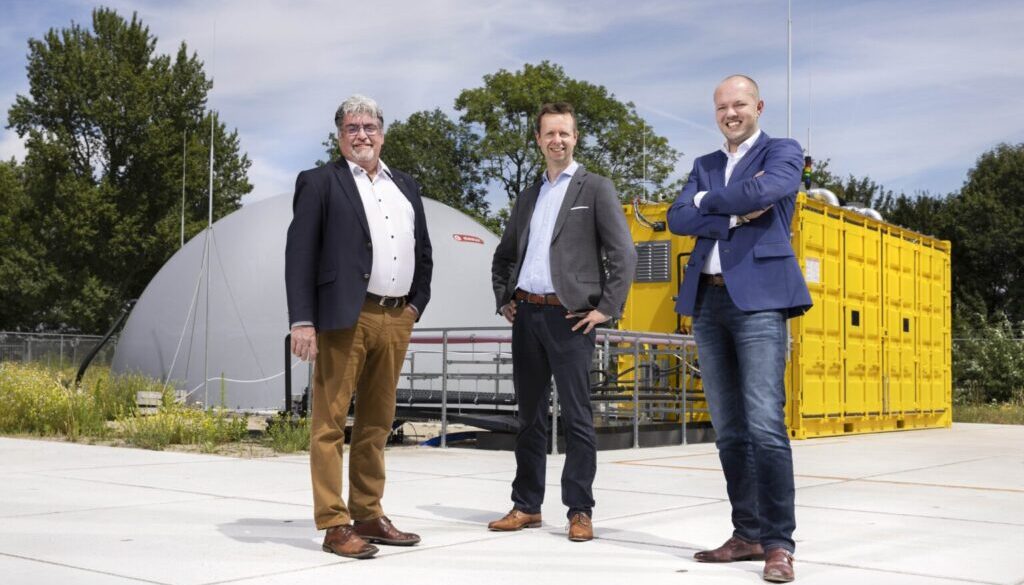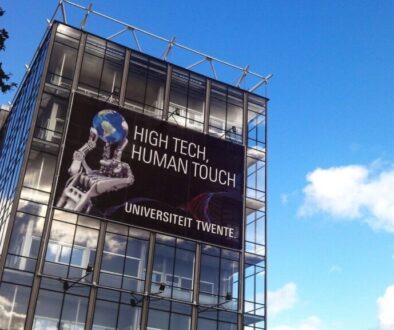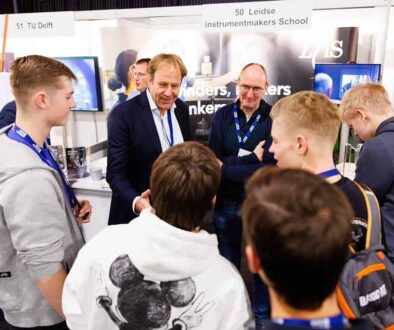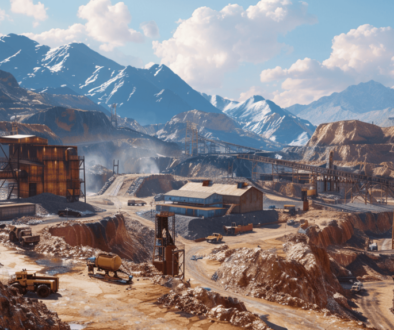‘True innovation requires focused attention – that’s exactly what a ROM provides’
From fossil fuels to green energy, the digitization of society, and a more sustainable food industry, we live in a time of great transitions. On the one hand, that offers hope. A greener, better future in which we treat the earth better is on the horizon. The Netherlands has 9,093 startups that are instrumental in accelerating those transitions.
‘It’s not down to the startups’
On the other hand, labor productivity and our capacity for innovation need to catch up. “Sometimes, that can be a bit frustrating to see. It’s not because we don’t have enough startups, innovative ideas, and entrepreneurs,” observes Arjan van den Born, ROM regio Utrecht general director. “Take our region. Many solutions exist for more efficient care, but the ideas are not getting into the hospitals. Whereas, in 15 years, there will be twice as much cancer in the Netherlands as now. So we have to make care more efficient and better, with the same amount of people. Then you have to innovate, and you can’t do that without startups. As ROM Netherlands (the nine Regional Development Companies in the Netherlands, ed.), we try to make a difference in that playing field.”
About LEVEL UP
On Monday, Sept. 30, BOM, Braventure, and The Gate are organizing the LEVEL UP event. ROM-NL is the official partner of the event. LEVEL UP celebrates and supports the (inter)national startup climate. During this event, startups find the inspiration, insights, and (investor) contacts to get their startup Level Up faster. The international character stimulates knowledge exchange, cooperation, and access to new markets. The focus of the event is on deeptech, healthtech, cleantech and agritech.
Helping startups make an impact
Figures from McKinsey show that established startups could generate €250 billion to €400 billion between 2022 and 2030. But before young tech companies can raise money, they often face a complicated bureaucratic process in the Netherlands.
And that is precisely where, according to Brigit van Dijk – van de Reijt, general director of the Brabant Development Corporation (BOM), an essential task of the ROMs lies: providing young companies with the proper support so that they do get in. “We help entrepreneurs draw up a clear business model, assemble a strong team, and find a clear focus and market fit. And, of course, by investing ourselves. In doing so, we send a signal to commercial investors. If a ROM believes in a particular technology or entrepreneur, it is easier for them to join.”
2023: 474 innovation projects, €353 million, and 1,000 entrepreneurs
Van den Born also sees limited money available for early-stage tech startups. “Investors often drop out then. With deeptech or healthcare startups, a company can take ten years to have a product. Commercial investors often don’t look that far ahead. That’s where the ROMs and the government play an important role.”
In 2023, the ROMs realized 474 innovation projects with a financial volume of €353 million and more than 1,000 entrepreneurs involved.
As an example, Van den Born cites Nordsol from Bunnik. This cleantech startup produces bio-LNG, a sustainable substitute for LNG. It converts biogas into bio-LNG, which the heavy transport industry can use as fuel. Nordsol opened its first bio-LNG plant in 2021; meanwhile, the fuel can be filled up at several gas stations in the Netherlands. “ROM Utrecht invested €2 million, and the remaining €6 million was raised from the commercial corner. We were the instigator, and the market picked it up further. That is exactly the role we have to play.”
The indispensable role of data in venture development
Only with the proper support can startups grow into scale-ups, Van Dijk—van de Reijt agrees. The availability of sufficient funds is indispensable for this. In addition, startup support needs to be taken to a higher level. “One language, one approach—venture development—to achieve more quality startups. Finally, the ecosystem must have sufficient data to monitor and adjust.”
Van den Born: “Data can help us identify patterns in the growth and development of startups. This allows ROMs to support startups in the right way at the right time.” Data analysis allows development companies to be more strategic and effective in their role as support organizations for startups. By recognizing patterns and providing targeted support, they can have a significant impact on the growth and development of local startup ecosystems.
Full focus on innovation
The ROM Netherlands – which consists of nine ROMs – together with Techleap.nl, Invest-NL, and knowledge institutions, forms a unique startup climate. In 2020, Utrecht was the last region in the Netherlands to establish a ROM. The feeling in Utrecht was somewhat prevalent; things are already going well, we score high on competitiveness, and we don’t need a ROM, says Van den Born. “But, in other regions, very good results were achieved. So we couldn’t be left behind.” Four years later, the region sees that if you want to innovate, you have to pay attention, which is precisely what the ROM does. “Already things were going well here; now they are going even better,” the director concludes with a smile.



